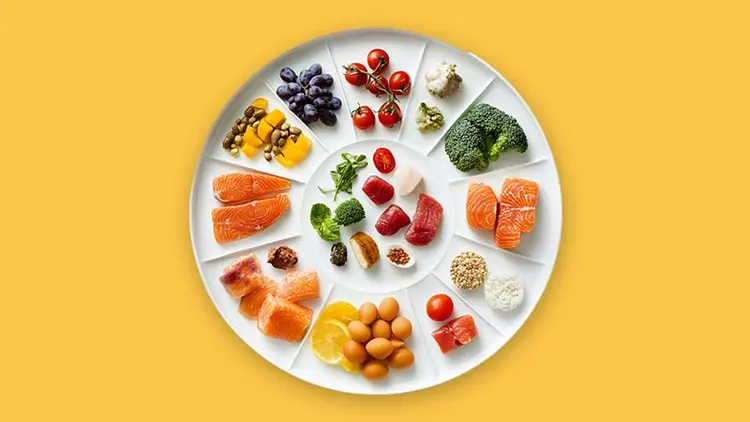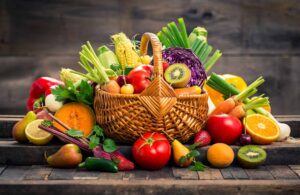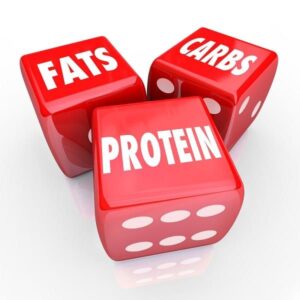A balanced diet means consuming moderate amounts of all the different food groups to ensure your body gets all the nutrients it needs. A balanced diet includes the right amounts of vegetables, fruits, whole grains, proteins, and healthy fats, rather than too much of one food, such as too many carbohydrates or one protein. This makes you feel full after eating and helps your body stay healthy. A balanced diet doesn’t mean a strict diet; it simply means making your meals healthier and your daily eating experience more enjoyable.
Why a Balanced Diet Is Good for Your Health
Developing a balanced diet is important for your long-term health. By eating various foods, your body gets the vitamins, minerals, and other nutrients it needs to stay healthy. Eating too much of one food can cause you to miss out on other important nutrients. On the other hand, eating various foods can keep your energy levels stable, promote digestion, improve your immunity, and even boost your mood. Eating a regular and balanced diet can also reduce the risk of lifestyle-related diseases, such as cardiovascular disease, diabetes, and obesity.
The Role of Whole Grains in a Healthy Diet
Whole grains are also an important part of a balanced diet. Whole grains like brown rice, quinoa, oats, and whole wheat bread are rich in fiber, which releases energy slowly and keeps you feeling fuller longer. They are also rich in important nutrients such as iron, magnesium, and B vitamins. Adding whole grains to your diet not only makes it more balanced but also promotes healthy digestion and prevents rapid blood sugar spikes. Choosing whole grains over refined grains is a simple way to significantly improve your health.
Protein for Growth and Repair
Protein is often called the building block of the body because it helps repair tissue, build muscle, and maintain a healthy immune system. Adequate protein on your plate helps your body stay strong and recover after daily activities. Lean meat, fish, eggs, beans, lentils, nuts, and dairy products are all excellent sources of protein. Whether you eat meat or not, protein should be a regular part of every meal. Adding protein to every meal also helps you feel fuller longer and reduces cravings.
Why Healthy Fats Are Important
Fats are sometimes considered harmful, but healthy fats are an important part of a balanced diet. They provide energy, support brain health, and help the body absorb vitamins A, D, E, and K. Avocados, olive oil, almonds, seeds, and fatty seafood like salmon are all beneficial sources of healthy fats. Adding a small amount of these fats to your meals can enhance flavor, promote fullness, and keep you feeling full longer. While limiting harmful fats like trans fats in fried or processed foods is crucial, it’s equally important to include small amounts of healthy fats in your daily diet.
Balanced Meals and Portion Sizes
When preparing balanced meals, you also need to pay attention to portion size. Even with a nutritious meal, overeating can lead to weight gain. A simple way to find balance is to fill half your plate with fruits and vegetables, a quarter with protein, and a quarter with whole grains, along with a small amount of healthy fats. This helps you manage your calorie intake and ensures you get all the nutrients your body needs. Portion control isn’t about restricting your food intake; it’s about eating the right amount to stay healthy and active.
How to Easily Prepare Balanced Meals at Home
Many people find preparing balanced meals a challenge, but with proper planning, it’s actually quite simple. By prepping vegetables ahead of time, cooking large quantities of nutritious grains throughout the week, and keeping protein-rich options on hand, you can quickly and easily create balanced meals. Roast chicken with brown rice and steamed vegetables, or lentil soup with whole wheat bread, are simple meals that are both healthy and filling. Our goal is to make healthy eating easy at home, without complicated recipes or expensive products.
Balanced Plates for Different Lifestyles
A balanced diet is adaptable and fits different diets and lifestyles. Adding colorful fruits and vegetables to meals makes eating more enjoyable for children and provides them with the nutrients they need for healthy growth. Busy adults can maintain a steady energy level by eating shorter meals, such as protein-rich salads or vegetable wraps. Athletes may need more protein and carbohydrates to improve their strength and endurance, while older adults may need more protein and fiber to maintain muscle and digestive health. You can make the concept of a balanced diet work for you.
Conclusion
Keeping your plate balanced at home is one of the simplest and best ways to stay healthy. By combining the right amounts of vegetables, fruits, whole grains, protein, and healthy fats, you can create meals that boost your energy, immunity, and long-term health. A balanced diet doesn’t mean giving up your favorite foods. It means knowing how to enjoy them in the right amounts, alongside other healthy foods. With daily commitment and a little effort, creating a balanced meal plan will become a simple habit that will benefit your physical and mental health for life.
FAQs
1. What does a balanced diet look like?
A balanced diet includes the right amounts of fruits, vegetables, whole grains, proteins, and healthy fats to provide you all the nutrients you need.
2. Do I need to avoid all unhealthy foods to have a balanced diet?
No, you can still enjoy your favorite snacks in moderation. The key is to establish a balance, limit your intake, and generally make healthy choices.
3. How can I easily prepare balanced meals at home?
Preparing quick, balanced meals is easy if you have vegetables, whole grains, and protein sources in your kitchen.
4. Why is portion size crucial for a healthy diet?
Portion size helps you avoid overeating and ensures your body gets the nutrients it needs without consuming too many calories, which can lead to weight gain.
5. Can a plate with different foods meet different dietary needs?
Yes, a balanced plate can be adapted to the needs of children, athletes, seniors, vegetarians, and non-vegetarians.




